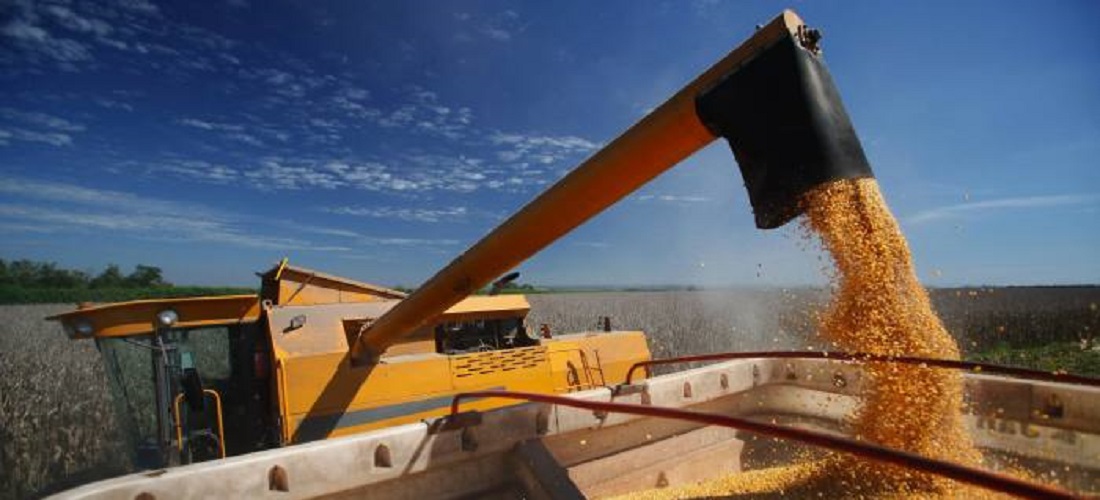
Brazil’s corn exports lose ground amid global production rise
Oct, 23, 2024 Posted by Gabriel MalheirosWeek 202442
After a record-breaking year for Brazil’s corn exports, the country is facing challenges in placing its product in the international market in 2024. The recovery of supply in key producing countries and a decrease in Chinese demand are expected to increase domestic reserves, putting even more downward pressure on prices in the local market.
Last year, Brazil exported 56 million tonnes of corn, according to the National Association of Cereal and Grain Exporters (ANEC). However, this year, the country is expected to lose the prominence it had in 2023 when it was the world’s largest corn exporter. The trade association estimates corn shipments in 2024 at 41 million tonnes.
The following chart explores Brazil’s export volume of corn in the period comprising January through August between 2021 and 2024. The data comes from DataLiner.
Corn Exports from Brazilian Ports | Jan-Aug 2021 vs. Jan-Aug 2024 | WTMT
Source: DataLiner (click here to request a demo)
Market players are more pessimistic. Consultancy Royal Rural estimates Brazil will export 39 million tonnes in 2024, as many competitors, such as Argentina, have recovered their supply.
“Last year, Brazil didn’t face competition from Argentina. After experiencing drought, Argentina resumed its production capacity and, from January to August this year, exported 24.5 million tonnes of corn. That’s 7 million tonnes more than last year,” noted Ronaldo Fernandez, an analyst at Royal Rural.
Argentina isn’t the only country increasing its supply this year. The same trend is seen in other major corn producers, such as the United States, Europe, and Ukraine. The scenario has given international buyers more flexibility to seek alternative sources for the grain.
Among importers that have turned away from Brazilian corn, China stands out. Last year, China was Brazil’s main corn buyer, responding to 17.4 million tonnes out of the 56 million tonnes the country sold. This year, however, Brazil’s corn shipments to China haven’t reached 2 million tonnes, according to Mr. Fernandes.
“China has long had plans to achieve self-sufficiency in corn production to control meat prices in its domestic market. They’ve seen some success in this goal, recovering areas lost to flooding,” the analyst said.
He pointed out that a sign of China’s reduced dependence on imported corn lies in the U.S. Department of Agriculture’s (USDA) projections. From August to October, the USDA lowered its estimate for China’s international corn purchases by 4 million tonnes, now forecasting 19 million tonnes. Mr. Fernandes believes the USDA will make further cuts by year-end.
With fierce international competition for corn supply, Mr. Fernandes adds that Brazil’s ending stock could reach 10 million tonnes, the highest level since 2018. If this projection is confirmed, it would flood the domestic market with excess supply, pushing prices down and exposing long-standing infrastructure issues in Brazil.
“This production surplus will strain our static storage capacity. If we have proper rain and a good soybean crop, where will we store so much corn and soy?” the analyst questioned.
The U.S. is also expected to capture a large share of the global corn market in 2023/24. With the largest harvest in its history (389.67 million tonnes) and exports of 58.23 million tonnes, according to the USDA, the country is expected to dominate sales to markets such as Mexico and the European Union.
“At this moment, major buyers are prioritizing corn from the U.S., which is currently the cheapest source. As a result, Brazil is unlikely to drive momentum in its export market,” said Leonardo Martini, a risk management consultant at StoneX.
By Marta Watanabe, Álvaro Fagundes
Source: Valor International
-
Shipping
Jun, 15, 2020
0
Maersk to change their mooring ropes over the course of five years
-
Grains
Mar, 22, 2022
0
Ukraine may lose US$6bn in grain exports with blocked ports
-
Ores
Aug, 30, 2023
0
Mining industry plans new expansion cycle in Brazil
-
Ports and Terminals
Sep, 23, 2021
0
60+ containers of hospital waste from USA and Dominican Republic discovered in the port of Santos



